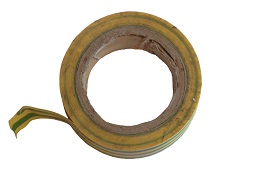With the rising costs of fuel and environmental awareness, many homeowners are concerned about minimizing their energy usage. Since heating the home has been shown to be the greatest proportion of domestic energy use, most of us take care to try to install the most energy efficient system possible. While this is an excellent step towards reducing your energy bills, you should also be aware of how insulation affects heating.
The Importance of Insulation:
When you think of insulation, you may think of keeping your home warm in winter, but insulation should actually be a concern throughout the year. Insulation slows the transfer of heat, which ensures that your home stays warm in winter and cool in summer. Heat is moved in three different ways; conduction as it moves through materials, radiation as it moves in a straight line, heating its direct path and convection as it moves through gasses and liquids.
In summer, insulation is used to slow heat from being transferred into the cooled areas of your home. During winter, it is used to slow the heat from being transferred into areas which are not part of your heating system, such as the basement, attic or outdoors. This barrier means that not only do you not waste money heating unused areas, but that you enjoy a comfortable temperature inside your home.
How Insulation Helps With Heating:
There are several ways that insulation helps with heating your home. The most obvious is that it improves energy efficiency. Without adequate insulation around your home, you could lose up to 30% of the heat in your home. This would mean that your heating system would be forced to work harder to maintain the temperature you’ve selected on your thermostat. This would not only mean that you are using more energy, but the additional strain on the system could compromise the lifespan of the unit and prompt breakdown issues.
Insulation can also be beneficial for improving the comfort level inside your home as it acts as a noise barrier. While you may enjoy having a powerful heating system or air conditioner to maintain your preferred temperature, you don’t necessarily want to sit listening to it. In addition to minimizing the noise in the street outside your home, adequate insulation means that even if your heating system has a powerful motor, you won’t be forced to hear it every time the furnace kicks in.
A specific level of insulation is often mandated in building codes for new properties and additions, but this does not necessarily mean that your home has sufficient insulation to ensure that you can enjoy energy savings and optimum comfort. Fortunately, it is possible to improve the insulation in existing homes. A professional heating specialist can assess your property to determine if you have enough insulation in your home. So, if you are dreading the prospect of costly heating bills over winter, it may be a good time to check your insulation. Improving your insulation will not only save you money on your energy bills, but will ensure that you and your family are warm on even the coldest winter days.
